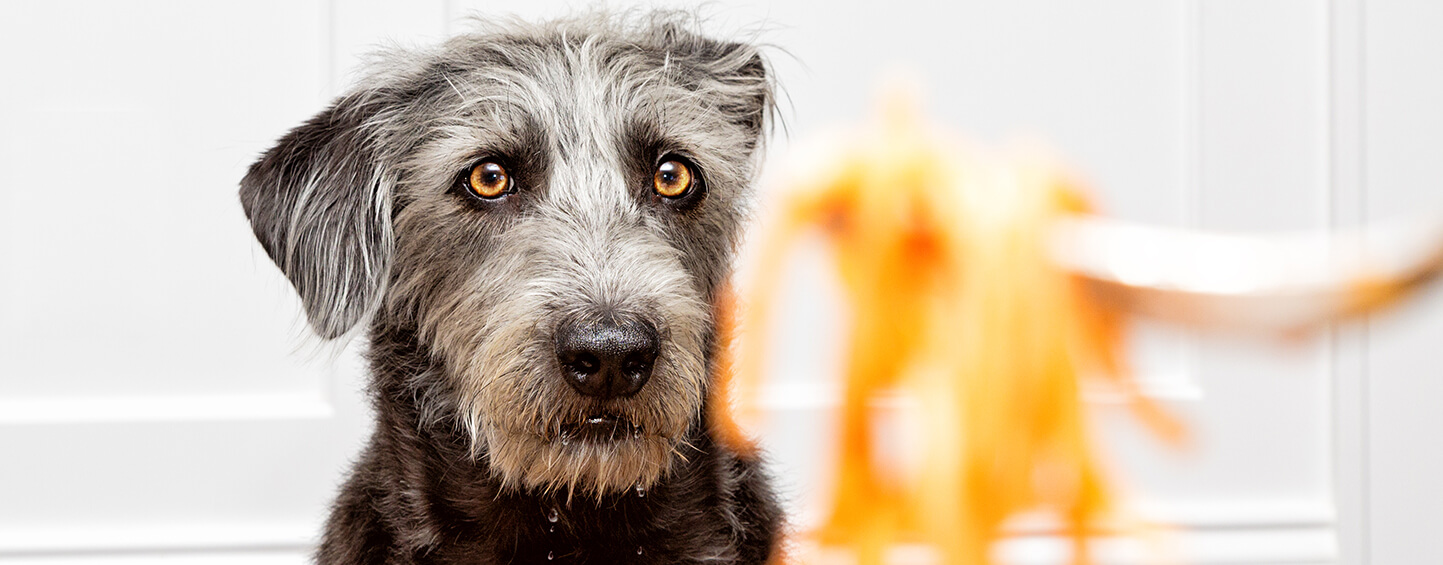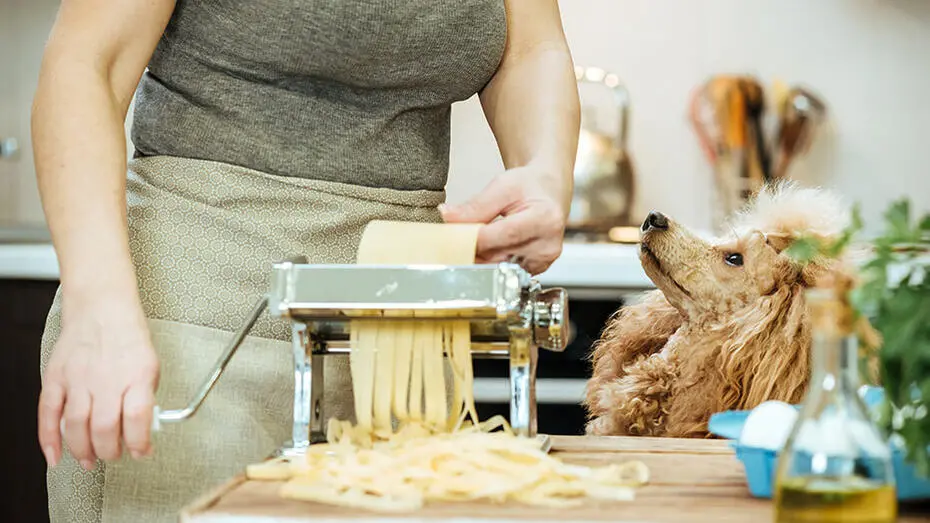
Iconic moment from Lady and the Tramp has spaghetti; did the filmmakers use creative license, or is pasta a healthy and appetizing food for dogs? There are a number of human meals that are known to be very dangerous to pets, so it’s understandable that pet owners would be concerned that spaghetti or noodles might do the same.
As you dive into that delectable mound of spaghetti on your plate, you may be wondering whether or not your dog can have some, too. Here’s the scoop on pasta and your dog’s dietary requirements so you can make an informed choice.
Can dogs eat spaghetti?
Pasta is OK for dogs, but only under certain conditions. Only provide them spaghetti that has been prepared without any seasonings or sauces. Due to the presence of potentially poisonous components like garlic and onions, the wonderful mound of pasta on our plates is not the type of treat dogs should consume.
Plus, the pasta itself should not appear in your dog’s meal too frequently as it might contribute to excess pounds for your pet. If you insist on treating your dog to some of this human fare, keep the serving size minimal and limit it to special occasions.
Adding human foods to your dog’s diet, even if they are healthy options like pasta, noodles, or spaghetti, is something you should always see your doctor about.
Can dogs safely eat pasta?
While dogs may safely consume pasta, it’s not often part of their diet. The frequency of your dog’s Lady and the Tramp moments and the presence of any health problems will determine whether or not you should feed them pasta. If your dog doesn’t have a wheat or grain allergy, you can feed him pasta. However, bear in mind that this diet won’t provide them with many essential nutrients. After all, pasta is mostly carbs, which in the appropriate proportions provide your pet some tail-wagging enthusiasm, but in big quantities may be damaging to their weight and health. Remember that high-quality dog food is a simple and convenient way to provide your dog with the energy it needs, in addition to many other beneficial nutrients.
While the odd pasta treat is OK for your dog, you shouldn’t make it a staple of their diet.
Can dogs eat spaghetti?

The good news is that dogs can enjoy spaghetti too, but only the simple type. Although the sauces we use are the finest part about this meal, the components in them might bring up a world of difficulties for your dog. It’s not simply because of components such as garlic which is poisonous for them.
Even the salt or sugar levels generally found in spaghetti sauces might be enough to create complications for a dog’s digestive tract.
You may serve your dog pasta every once in a while, but only when made without added additives.
Can dogs eat noodles?

Noodles are OK for dogs to consume on occasion. A dog’s dietary requirements aren’t met by eating noodles. While they are safe for canine consumption, the significant amount of carbs in them may lead to obesity.
So, if your dog swallowed a piece of noodle by mistake, don’t worry too much; they’ll probably be OK. However, you should still keep an eye on them in case they start showing any peculiar symptoms. Instead of feeding your dog noodles on the daily, you should definitely choose healthier dog treats or dog food that is more suited to their dietary requirements.
Signs your dog is experiencing a pasta allergy
The answer to the question “can dogs eat pasta?” is not a simple “yes,” due to the fact that the sauce may include substances that are harmful to dogs. On the other hand, some dog owners may be wary about feeding their canines pasta because of the possibility of an allergic response.
Simple materials like flour, eggs, and water are all that are needed to make pasta. The two most common allergens in baked goods are eggs and flour. Itching, diarrhea, vomiting, and excessive pawing at the ears might all be signs that your dog has an ear infection, which is another typical symptom of wheat intolerance. If your dog is exhibiting unusual behavior, it is important to schedule an appointment with the doctor as soon as possible so that the issue may be identified.